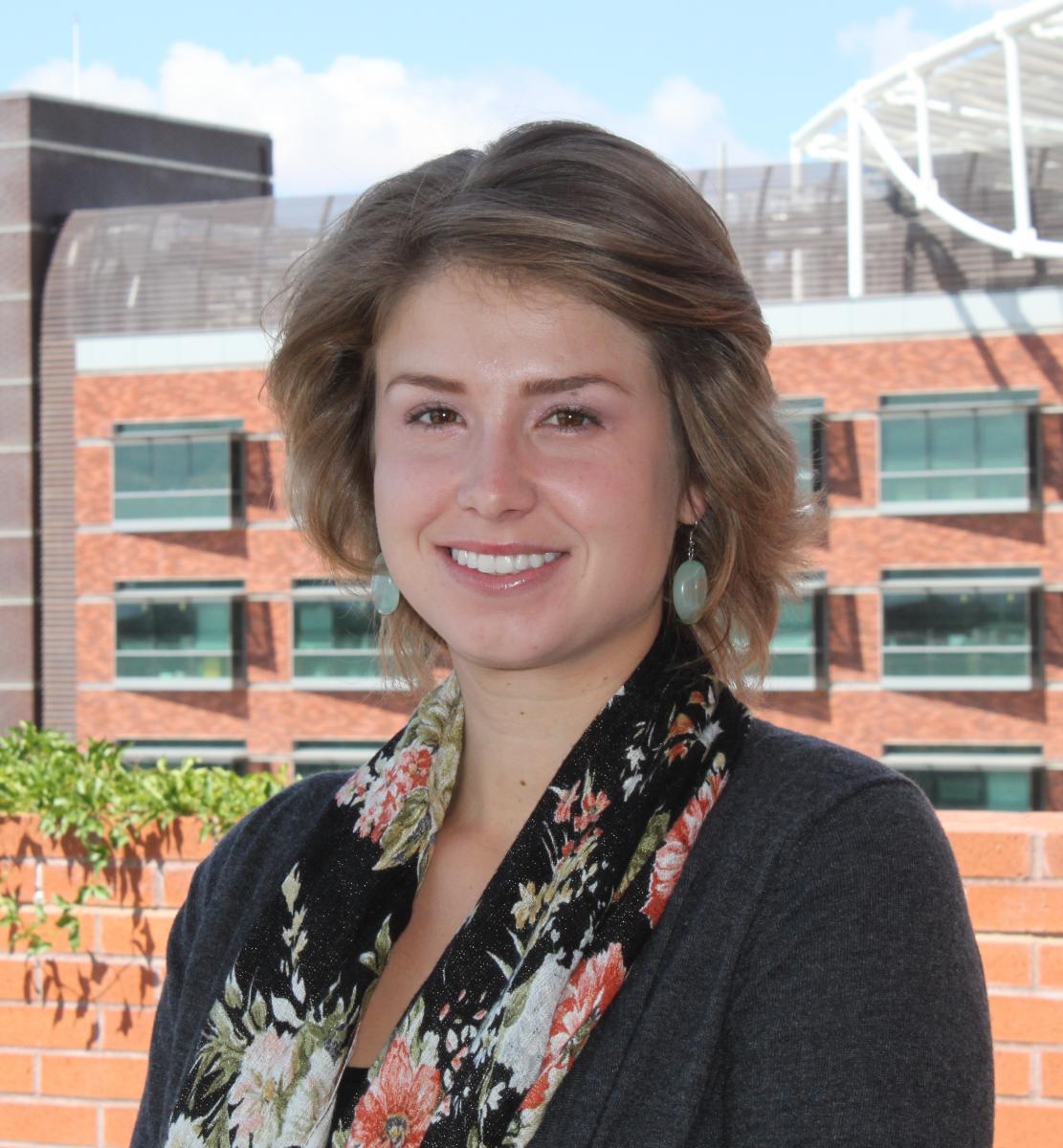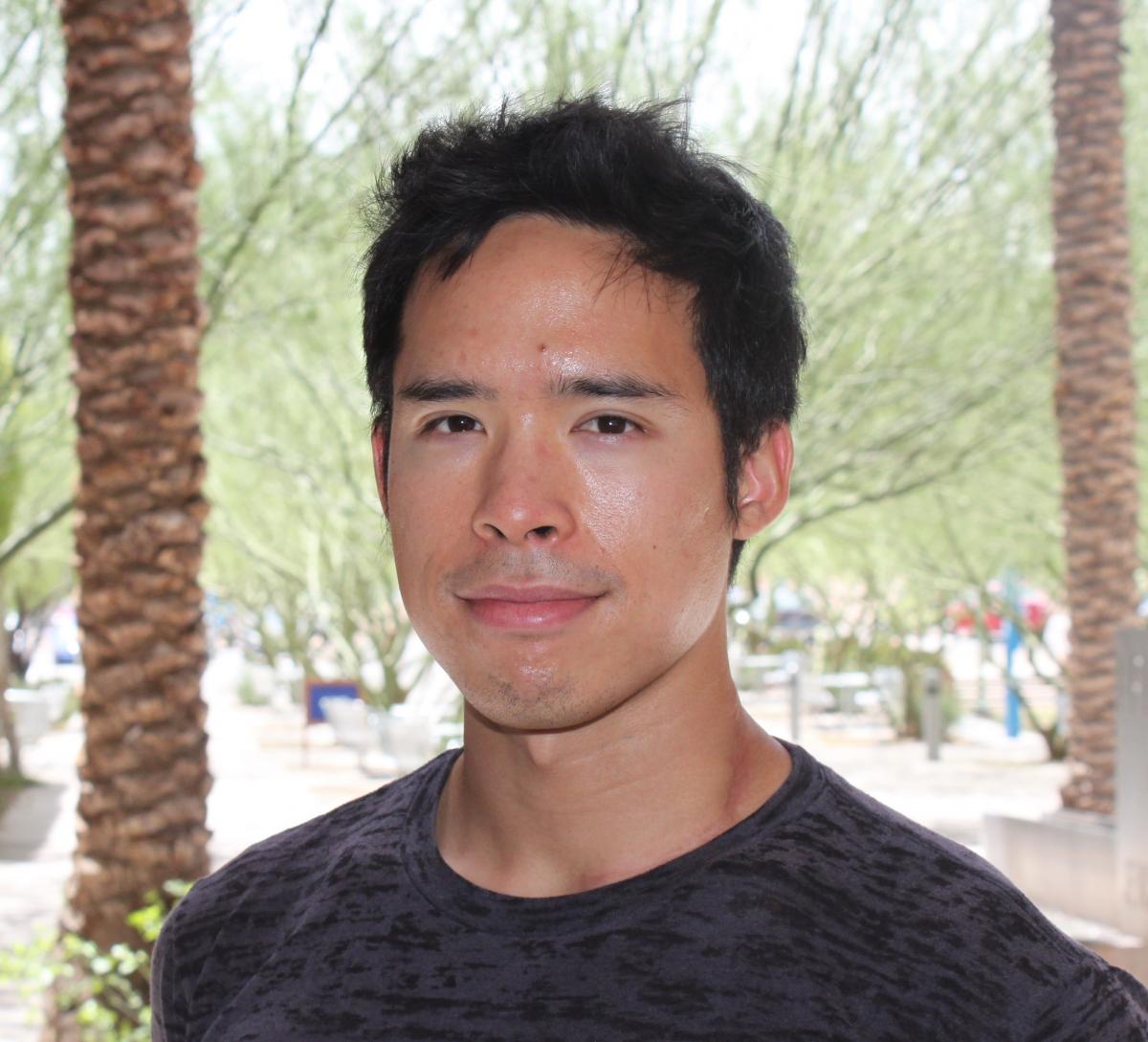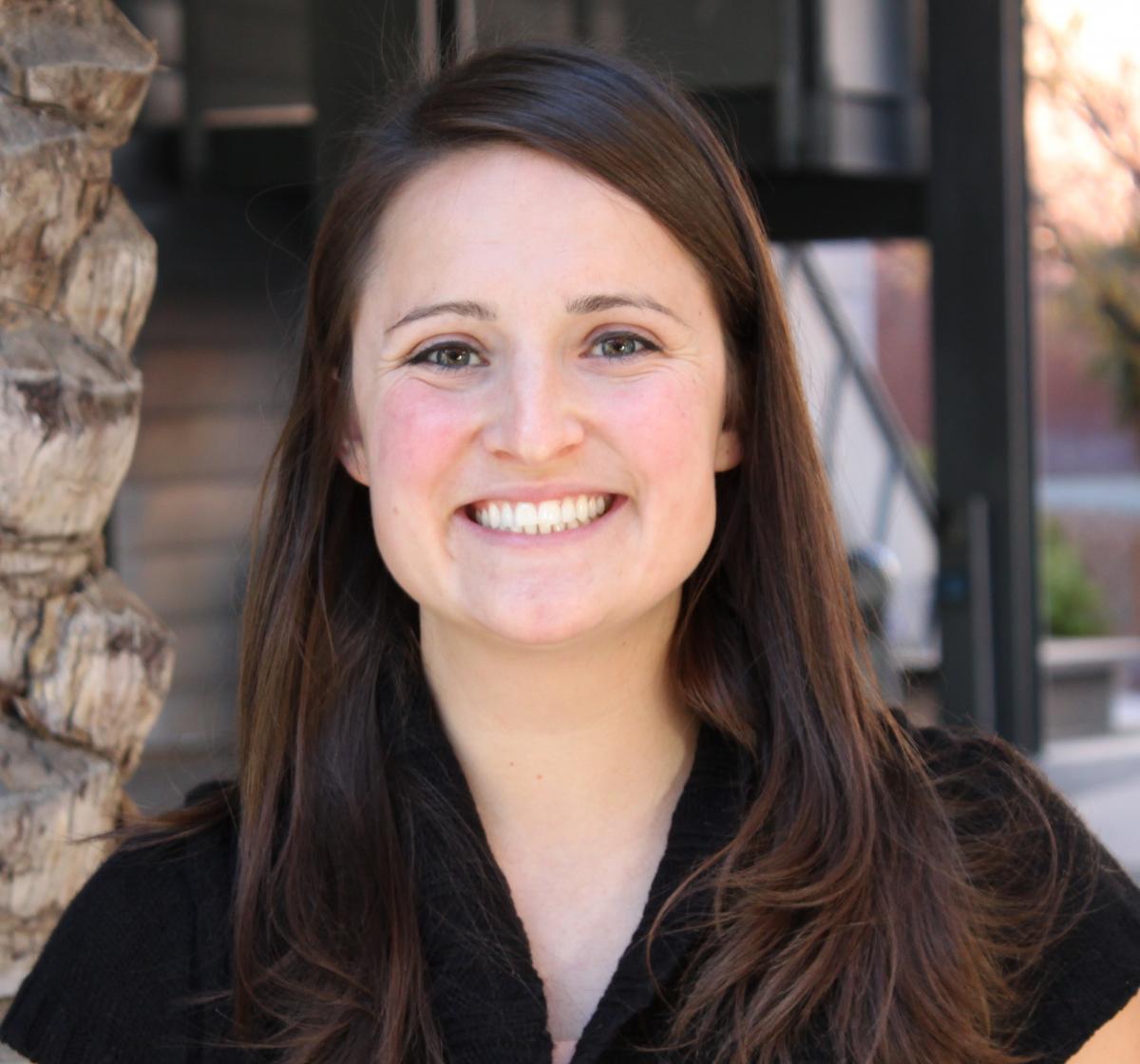UA College of Public Health Will Honor 171 Graduates at Convocation, May 11
On Saturday, May 11, the Mel and Enid Zuckerman College of Public Health will honor 171 graduates at its Spring convocation from 8-10 a.m. in Centennial Hall (1020 E. University Blvd.), UA Main Campus, Tucson. A reception follows in the Women’s Plaza Walkway.
The UA College of Public Health is the first and only nationally accredited college of public health in the State of Arizona. This Spring, 96 graduates will receive a bachelor of science (BS) degree with a major in public health; 70 will receive master of public health degrees (MPH); one will receive a master of science (MS) in biostatistics; one will receive a master of science (MS) in environmental health sciences degree; one will receive a doctor of public health (DrPH) degree with a concentration in maternal and child health; one will receive a doctorate (PhD) in epidemiology; and one will receive a doctorate (PhD) in environmental health sciences.
Inspiring 2013 UA Mel and Enid Zuckerman College of Public Health graduates include Natalie Becker, who will receive a BS in Public Health; David Bui, who will receive a MPH in Epidemiology; and Laura Suppes, MPH, who will receive a PhD in Environmental Sciences.
Natalie C. Becker (BS, Public Health, Minor in Nutrition)
 |
| Natalie C. Becker |
“I originally intended to study physiology but quickly realized while sitting in on one of the information sessions during my freshmen orientation that I was in the wrong place,” recalls Natalie Becker, who will receive a Bachelor of Science in Public Health with a minor in nutrition. “In the midst of my panic, I happened across Alan Beaudrie presenting the new undergraduate degree program of public health and signed up for the program right then and there.”
A native of Hollister, Calif., a rural community about one hour south of San Jose, Becker will stay in Tucson following graduation, working as a case manager with Child Protective Services of Pima County, where she worked as an intern before they offered her the position.
“I assisted the case managers and supervised family visits between parents and their children within the CPS office,” she says. “What I liked about the job is not knowing what might happen next.
“Being part of a community that you love is an enriching experience. But at the same time it’s an eye opening experience when you pull back the curtain and discover how many people have it rough in our small town of Tucson. So working with these families made me want to help.”
Her education at the College was invaluable in preparing for her new job, she notes. “Without my experiences with the College of Public Health, I would not have understood the need families have for healthy environments, both physical and emotional. Growing up in a healthy environment can help lead an individual to a well-rounded healthy life as a whole.”
Becker volunteered as Public Health Ambassador for the College. “My main function, as an ambassador was ‘road trips.’ I met with literally hundreds of hopeful high school students and let them know just how much the College of Public Health has to offer.”
She encourages students to get their undergraduate degree in public health, she says, because “if a person has even a remote desire to work with people and have the ability to better understand the world you live in, then this is the field for you.”
An only child, Becker “inherited” a gene for public service. Both her parents are police officers. Her dad is a Vietnam veteran and a sergeant for the San Benito Sheriff’s Department who will retire in September. Her mom is division manager for operation support services at the San Jose Police Department. Her parents bonded over community service. Becker remembers spending weekends with her parents volunteering to sell hot dogs at Kiwanis Club events.(Kiwanis International is a global service organization of volunteers of every age, dedicated to changing the world, one child and one community at a time.)
Having grown up in a small town, Becker finds that “Tucson is overwhelming with opportunities and activities that allow me to get closer with my community. I love the weekend events, and couldn’t say enough about the great people I am proud to call my neighbors. Everyone here seems to have healthy goals they are working towards on a daily basis.”
She adopted a dog (Kodah, 12 years old) and a cat (Harlin, four years old) from the Pima Animal Care Center. “The only thing I don’t like about Tucson is that it is too hot to walk my old dog in July!”
Becker hopes to return to the College of Public Health for her Master’s in Public Health.
David Bui (Master of Public Health in Epidemiology)
 |
| David Bui |
For David Bui, the field of public health and epidemiology provides him with a daily dose of “Aha!” moments. (Epidemiology is a branch of medical science that deals with the incidence, distribution and control of disease in a population.) His interests range from social media and public health informatics to injury epidemiology, particularly pedestrian and bicyclist injuries.
A native of Orange County, Calif., who holds an undergraduate degree in English Literature from the University of California-Berkeley, Bui will graduate with a Master of Public Health (MPH) in Epidemiology from the UA Mel and Enid Zuckerman College of Public Health.
He says the MPH program allowed him to spend a lot of time learning about disease surveillance systems and how public health agencies monitor populations to detect outbreaks or other public health events.
His internship project involved working with HealthMap.org, a disease surveillance program that mines online data sources to detect outbreaks as they occur all over the world. His project involved helping HealthMap set up a surveillance feed to monitor Vietnamese language news media to detect and monitor outbreaks in Vietnam. The surveillance system now is live on their website for anyone to view.
“Disease surveillance in Vietnam is critical to global public health given its history with emerging infectious diseases and proximity to other countries at high risk for potential pandemic outbreaks,” says Bui.
“Having an interest in social media and public health informatics, I learned about how some research groups were tapping into social media and other online data sources to monitor population health status (like Google flu trends) and I was fascinated by the methods people were developing and data sources they were using to enhance disease surveillance.”
“Social media represents an amazing source of population health data, since it is generated directly by the public – and it’s generated in an accessible electronic format that public health researchers can use for analysis,” he notes. “Twitter feeds, Facebook statuses, blogs and discussion boards all provide data and are potential surveillance sources. They have proven to be quite effective by research organizations to monitor population health status and disease outbreaks. Since it is generated directly by the public, it’s much faster than going through the traditional public health reporting chain of command.”
“There are really so many new and novel data sources out there that we can potentially harness and use for public health. It’ll be exciting to see public health evolve with social media and health informatics,” says Bui.
Before moving to Tucson, Bui was living in San Francisco and working at the University of California-San Francisco (UCSF). “I had been working with a clinical and translational research program at UCSF, doing administrative work. I decided to get more involved on the research side and go back to school for an MPH,” says Bui.
Bui says he will remain in Tucson after graduation and continue his studies in the PhD/Epidemiology program at the Zuckerman College of Public Health, “partially because of my research interests and goals to work in research, but mostly because the supportive faculty and staff at the College of Public Health.”
“I’m hoping to pursue my interests in injury epidemiology, particularly in pedestrian and bicyclist injuries, and would like to study how they occur and in what kind of environments they’re occurring. Tucson is quite unique in that it has a huge bicycling community and pedestrian presence, but also a lot of environmental risk factors for traffic related injuries, making it a fairly ideal place to study pedestrian injuries.
“We’re also located right next to the only Level 1 trauma center in Southern Arizona, with fantastic researchers. This makes the UA a very prime place to study injury and trauma,” he says.
“I can’t imagine a better job than to spend my time learning and researching issues I’m curious about and getting paid for it.”
Laura Suppes, MPH (PhD in Environmental Health Sciences)
 |
| Laura Suppes, MPH |
Laura Suppes has the distinction of being the first to graduate in the Environmental Health Sciences PhD program at the University of Arizona Mel and Enid Zuckerman College of Public Health.
Before coming to the UA, Suppes, a native of St. Paul, Minn., worked for three years as a registered environmental health specialist with the St. Paul Ramsey County Department of Public Health while attending the University of Minnesota for a Master in Public Health (MPH).
”My primary job duties were inspecting restaurant and swimming pool facilities for health and safety hazards,” she says. “I initially became interested in this work as an undergraduate in the environmental public health department at UW-Eau Claire [the University of Wisconsin-Eau Claire].”
Suppes says it was research by Kelly Reynolds on human exposures to microbial contaminants in water that led her to Tucson. Reynolds is an associate professor of environmental health sciences at the UA College of Public Health and Suppe’s advisor.
“I applied to several programs and decided on the UA because Dr. Reynolds’ research is so unique. The work I performed as a health inspector led to my involvement in what turned out to be my dissertation research, focusing on ingestion exposures in swimming pool environments and swimming risk,” she says.
Her advice to swimmers this summer is to swim safely! “No one should enter pool water if they have experienced diarrhea or vomiting in the past two weeks. Chlorine does not sterilize pool water. Since not everyone is abiding by this recommendation, try not to swallow pool water when you do swim, and definitely do not intentionally swallow.”
If you ask her what she loves about environmental health sciences, Suppes will tell you it’s simple. “I chose a career in environmental health because the work we do is essential for healthy, quality living. Humans require water, food and oxygen in air for survival. Environmental health scientists work to ensure water, food and air are safe to consume or breathe.”
While working on her PhD, Suppes still managed to create a new student group, the Student Environmental Health Sciences Association. The organization provides community outreach, networking and learning opportunities for members. She also chaired the Public Health Research Poster Forum, which was an opportunity for students, staff and faculty to highlight their innovative and interdisciplinary research activities. In addition, she served as a College of Public Health student ambassador. As a self-described cheerleader for the college, Suppes works with the Office of Student Services to recruit new students to the program and to educate the Tucson community about public health issues.
Suppes will head back to the Midwest in August to begin her new job as an assistant professor at the University of Wisconsin-Eau Claire, where she will teach “Introduction to Environmental Health, Water and Wastewater.”
She also has been invited to help coach the UWEC women’s ice hockey team, which she played on for four years, served as a captain for two and received First Team All-Northern Collegiate Hockey Association (NCHA) honors in 2006-2007 and All NCHA Academic Team all four years.

